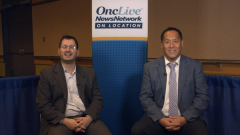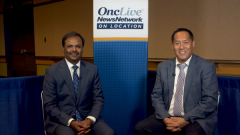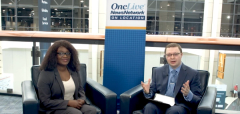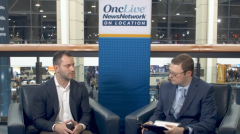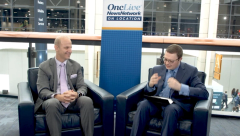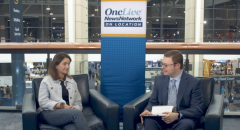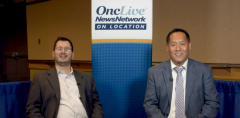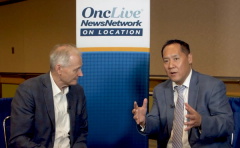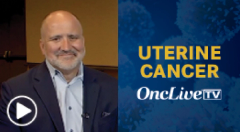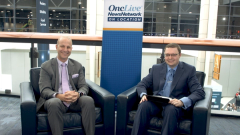
Dr O'Malley on Updates in Gynecologic Oncology at the 2024 ASCO Annual Meeting
David M. O’Malley, MD, and Chandler H. Park, MD, FACP, discuss updates in gynecologic oncology at the 2024 ASCO Annual Meeting.
Episodes in this series

David M. O’Malley, MD, professor, Department of Obstetrics and Gynecology, The Ohio State University College of Medicine, director, Division of Gynecologic Oncology, co-director, Gynecologic Oncology Phase I Program, The Ohio State University Comprehensive Cancer Center — James; and Chandler H. Park, MD, FACP, medical oncologist, Norton Healthcare; clinical assistant professor, University of Kentucky; medical school professor, University of Louisville School of Medicine; Kentucky medical oncologist representative, National Comprehensive Cancer Network; Kentucky physician representative, State Executive Council, American Society of Clinical Oncology (ASCO), discuss updates in gynecologic oncology on OncLive® News Network: On Location at the
O’Malley says that at the meeting, there were presentations about promising smaller trials that can significantly contribute to future larger trials and enhance the collective knowledge for treating patients with gynecologic cancers. Building on past research successes, particularly in patients with microsatellite instability-high (MSI-H) and mismatch repair (MMR) deficiencies, immunotherapy has become a cornerstone of gynecologic oncology, Park reports.
O’Malley and co-investigators presented the updated results of the phase 2 KEYNOTE-158 trial (NCT02628067) investigating pembrolizumab (Keytruda) in patients of Chinese descent with advanced solid tumors that are MSI high or MMR deficient. Pembrolizumab treatment resulted in a favorable response rate in this patient population. This finding is particularly remarkable in the context of metastatic recurrent cancers, where achieving long-term disease control is quite challenging, O’Malley reports, saying that investigators are seeing cases of potentially cured metastatic, recurrent, MMR-deficient uterine cancers, which is promising.
O’Malley believes the best use of these findings is in the first-line setting. Although he is proud of the achievements accomplished in the KEYNOTE-158 study, employing these treatment strategies upfront could cure more patients with metastatic or recurrent uterine cancer, O’Malley says.
These findings are crucial because patients want to hear about the potential for a cure, Park expands. Oncologists often focus on data, such as hazard ratios and median progression-free and overall survival times, but what truly resonates with patients is the chance to get rid of their cancer, according to O’Malley. Instead of emphasizing statistical terms, oncologists should communicate the likelihood of disease control or cure to their patients, he concludes.



